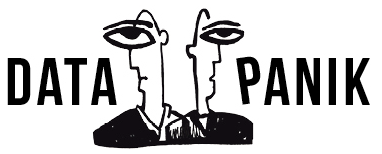 Gisteravond werden in de Brusselse KVS de Big Brother Awards 2015 uitgereikt. Over de winnaars kon je in een vorig bericht al meer lezen. Hierna volgt de speech die door jurylid Ben Caudron uitgesproken werd om de winnaar van de juryprijs aan te kondigen. Inspirerend, constructief en positief!
Gisteravond werden in de Brusselse KVS de Big Brother Awards 2015 uitgereikt. Over de winnaars kon je in een vorig bericht al meer lezen. Hierna volgt de speech die door jurylid Ben Caudron uitgesproken werd om de winnaar van de juryprijs aan te kondigen. Inspirerend, constructief en positief!
An invitation to keep searching for dialogues
that respect privacy and avoid the culture of fear
Ever since people embraced the Internet, ever since we learned about the consequences of our new ways of interacting and communicating, the urgency to reflect upon – and maybe even rethink – the meaning of privacy grew stronger.
Yet, popular discourse still does not reflect this urgency. Instead, witticisms that deny privacy’s utter relevance are plenty. Even after the revelations by whistleblowers like Edward Snowden, there is the tendency of people to go for the simple messages presented by the evangelists of privacy’s death. This message, repulsive and false as it is, is successful because it taps into people’s longing for activities that do not require conscious reflection. It’s so much easier not to be concerned.
Fortunately, both scholars and activists are working hard to bring the understanding of privacy up to date. Their reflections on today’s uneasy balance between innovation, safety and privacy give hand to new ways of thinking.
One of the most promising scholars today is Helen Nissenbaum. Nissenbaum’s work takes the limits of the previous frameworks of privacy as its starting points. Nissenbaum does not reject the legalistic logic that shaped these old frameworks. Instead she adds the key notion of context to the concept of privacy. She turns privacy into a living practice.
To Nissenbaum, privacy is about the actors’ expectations on the purpose and the acceptable consequences of the exchange of information. These expectations follow from particular contexts. What holds in one situation doesn’t hold in another. A normal exchange of information in one context can be a privacy breach in another context.
I would like you to bear this key notion – the notion of context – in mind while you listen to my cautious attempt to explain why exactly the jury selected this year’s winner of the Big Brother Awards.
First, I would like to talk to you about the nominees in general, because one candidate aside, all of them do have common grounds.
- All of them are expressions of the extraordinary combination of institutional concerns and technological feasibility. In this combination, technology that serves whatever institutional purpose – be it commercial or political – is put in use without much reflection on its societal consequences.
- All of them are illustrations of the awkward relationship between liberty and security. They raise difficult questions about the assumed contradictions in this relationship. They all are expressions of the frenetic attempts to deal with todays multiple contingencies by denouncing the importance of individual liberties.
- All of them are expressions of today’s operative logic of pre-emption. In this logic, what shapes actions is not what happens but what could happen. Perceived risks shape action and thus become real in its consequences. Put bluntly we suffer not only from real dangers, but from the perceived possibilities as well.
- All of them are born from today’s dominant narratives. These narratives shape the representations of reality. These narratives legitimize the policies that are used to establish the systems of control and surveillance.
- All of them are victims of today’s tendency to covertly change – in the good old Orwellian tradition – the basic meaning of words. They all are examples of the power exercised through language. They all illustrate the capacity to distract, to conceal through the use of words that are overstretched. Can anyone still define ‘terrorism’ today?
Before I move on to the proclamation of this year’s winner, allow me to share a personal story. A story that starts way back, in the days my world – ever so small and safe – started to open up. In the days I was sent to “the big school”, in the big city. I remember going crazy when I tried to oversee the playground. In my recollection thousands of noisy children were yelling and playing. I guess I felt pretty unsafe. I felt threatened by reality’s multiplicity.
Luckily, there was Meester Deboodt. He didn’t run, he didn’t yell. Even more important, he was a grown-up. I immediately accepted him as a beacon in the ocean that was life. I accepted him because I had learned to feel safe among grown-ups, because he was offering me a context of trust.
In the years to follow, other adults took on the role of trustworthy adults who were engaging and caring. They didn’t change that much: other names, other faces, the same context of safety and predictable realities.
I was what changed. I was growing up. I explored new ways of identifying myself. For one reason or another I became interested in what nowadays would be called ‘leftish’ – maybe even ‘radical leftish’ – thinking. To me these labels had no meaning. To me it was nothing but a normal reaction to my discovery of structural inequalities in the world. Most of the teachers simply ignored my ‘activism’. My exploration of ideas wasn’t defined as a threat. At best I was considered to be a little different. Big mouthed maybe, but basically innocent, and ignorant.
By now you can probably guess who was elected as this year’s winner of the Big Brother Awards? You are probably waiting for me to name the winner, a name to blame, a name to shame.
In that case I will have to disappoint you. The jury decided not to name anyone. Instead we elected a phenomenon. We decided to blame a practice, not the people nor the institutions that were brought to our attention by the media.
This year’s winner is the systematic screening of youngsters’ online activities by teachers in an attempt to detect signs of radicalisation. With this choice, the jury affirms the arguments of the Flemish Child Rights Coalition, who nominated the laureate:
Schools shouldn’t screen their pupils’ online behaviour in a systematic way. Doing so is a violation of the pupils’ privacy, a negation of the pupils’ rights to express themselves.
Schools should thrive on trust, not on fear. Trust allows for prevention. Fear gives hand to repression. Direct dialogue must remain the main way of interaction.
Schools should remain institutions that allow for youngsters to experiment as part of their search for identity.
Instead of shaming the known violations of the contexts of trust schools ought to be, the jury would like to take the opportunity to call for positive action.
While we do denounce the practices that came to light, we believe that these practices do not result from the wish to opt for repression. We believe most teachers do have a genuine wish to find the best possible ways to understand what is going on in the worlds their pupils live in.
Therefore, let this year’s election of the Big Brother Awards be an invitation, an invitation to all adults who try to guide youngsters in a world of uncertainty, an invitation to keep searching for dialogues that respect privacy and avoid the culture of fear.
(Speech delivered by Ben Caudron, announcing the jury’s laureate of the Big Brother Awards Belgium 2015)

